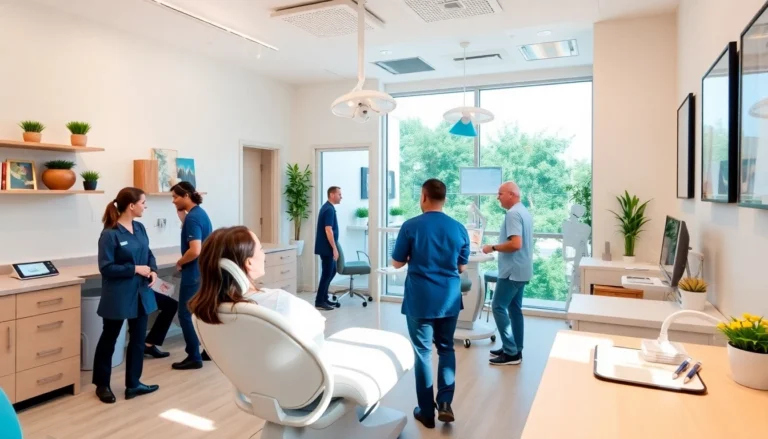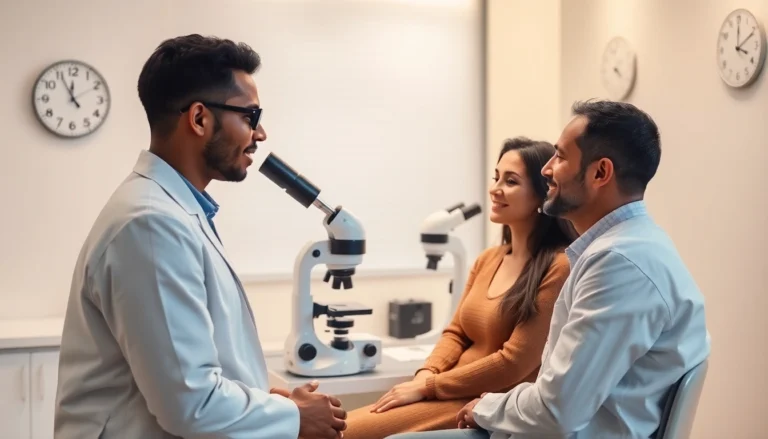Understanding Drug Addiction: Causes, Signs, and Early Detection
Drug addiction, also known as substance use disorder, is a complex condition that affects the brain’s chemistry and functioning, leading to compulsive drug seeking and use despite harmful consequences. According to recent statistics, over 1.5 million people in Ukraine are affected by drug dependency, with the root causes being multifaceted. Factors such as genetic predisposition, environmental influences, mental health conditions, and social circumstances contribute to the onset of addiction. In Ukraine, the alarming annual increase of 8-10% in drug use, coupled with a decreasing age of dependence onset, underscores the urgent need for effective treatment and early intervention. Recognizing the initial signs of dependency can significantly improve outcomes and facilitate timely treatment. For a comprehensive approach to overcoming addiction, exploring treatment for drug addiction becomes essential at this stage.
Common Causes of Drug Addiction and Risk Factors
The emergence of drug addiction is often linked to a combination of biological, psychological, and social factors. Genetic predisposition plays a pivotal role, with family history increasing the likelihood of dependency. Psychological factors such as trauma, mental health disorders like depression or anxiety, and low self-esteem can drive individuals toward substance use as a form of self-medication. Social influences, including peer pressure, availability of substances, and exposure to environments where drug use is normalized, further amplify the risk. Additionally, early exposure during adolescence, when the brain is still developing, significantly raises the chances of developing a long-term addiction. Understanding these causes aids in developing personalized treatment plans that target underlying issues, increasing the chances of successful recovery.
Early Symptoms and Behavioral Signs of Dependency
Detecting drug dependency at an early stage is crucial for effective intervention. Key behavioral signs include drastic changes in social circles, neglect of responsibilities, secretive behavior, and sudden decline in academic or work performance. Physical symptoms often begin with dilated pupils, weight fluctuations, and poor hygiene, progressing to more serious health issues like cardiovascular problems, liver damage, or respiratory issues depending on the substance. Psychologically, dependent individuals may exhibit mood swings, paranoia, forgetfulness, or hallucinations. Recognizing these signs early allows family members and caregivers to seek professional help before dependencies become more severe. Such timely detection often involves consultation with specialists in addiction treatment centers like the prominent Kyiv-based “Troitsky” center, which employs advanced methods tailored to each patient’s needs.
Step-by-Step Approach to Treatment for Drug Addiction in Kyiv
Initial Detoxification and Stabilization Procedures
The foundational phase of treatment begins with detoxification, aimed at safely removing the substance from the body and managing withdrawal symptoms. Depending on the nature of the addiction, detox can be performed through classical inpatient detox or via ultra-rapid detox (URD) methods. Medical supervision is paramount, with specialized protocols involving intravenous infusions of detoxifying agents, hepatoprotectors, cardiovascular protectants, sedatives, and vitamins to stabilize the patient. In Kyiv’s reputable centers like “Troitsky,” the detox process is tailored to the individual, considering the type and severity of addiction, ensuring safety and comfort. During this stage, the patient also undergoes thorough medical examinations to assess organ functions, which guide subsequent therapy. The transition from physical detox to psychological treatment is critical, as understanding and accepting the dependency forms the cornerstone of subsequent recovery phases.
Psychological and Behavioral Therapy Techniques
Following stabilization, psychological and behavioral therapies are employed to address the mental and emotional facets of addiction. Cognitive-behavioral therapy (CBT) helps patients recognize and alter negative thought patterns and behaviors associated with drug use. Motivational interviewing techniques enhance internal motivation to change, tackling denial and resistance often present in addicts. Family therapy plays a vital role, reconnecting or strengthening social support networks, which are essential for long-term sobriety. The interdisciplinary team at “Troitsky” centers also utilize art therapy, gestalt therapy, and group support sessions grounded in the principles of the 12-step program, fostering peer support and shared经验. These approaches aim to rebuild self-esteem, develop coping skills, and prepare patients for reintegration into society without reliance on substances.
Long-term Rehabilitation and Relapse Prevention Strategies
Recovery extends well beyond detox and initial therapy. Long-term rehabilitation concentrates on restoring personal, social, and occupational functioning. Patients are engaged in individual and group therapy sessions designed to address underlying problems such as low self-esteem, family conflicts, or co-occurring mental health issues. Employment programs, cultural activities, and physical training are integrated to foster a balanced lifestyle. The cornerstone of relapse prevention is the development of a durable support network, participation in ongoing group meetings, and continuous counseling. The “Troitsky” center emphasizes the importance of sustainable habits, emotional resilience, and re-establishing self-worth to maintain sobriety over time. Collecting regular progress metrics and adapting therapy strategies ensures each patient’s ongoing commitment to a drug-free life.
Innovative and Evidence-Based Treatment Methodologies
Medication-Assisted Treatment Options in Kyiv
Medication-assisted treatment (MAT) remains a cornerstone of effective drug addiction therapy worldwide. In Kyiv, clinics like “Troitsky” incorporate pharmacotherapy, using medically approved medications to reduce cravings, alleviate withdrawal symptoms, and prevent relapse. Opioid substitution therapies such as methadone or buprenorphine are employed for opioid dependence, aligning with global standards. For stimulants like methamphetamine or synthetic drugs, alternative medications are under ongoing research, with supportive therapy playing a crucial adjunct. The strategic combination of medications and psychological support creates a comprehensive pathway toward long-term recovery, reducing the risk of relapse significantly. Proper medical supervision ensures the safety and efficacy of these pharmacological regimens, tailored to each patient’s specific needs.
Holistic Approaches: Art Therapy, Cognitive Therapy, and Social Support
A holistic approach enhances conventional treatments by addressing the emotional, mental, and social components of addiction. Art therapy allows patients to express complex feelings non-verbally, aiding in trauma processing and emotional regulation. Cognitive therapy aims to reshape distortions in thinking that reinforce addictive behaviors. Social support services, including peer groups, vocational training, and family counseling, ease societal reintegration and foster accountability. Facilities like “Troitsky” integrate these innovative modalities into their comprehensive programs, ensuring a multidimensional pathway to recovery that addresses all facets of the individual’s well-being. These methods contribute to rebuilding confidence, social skills, and resilience, crucial for sustaining long-term sobriety.
Specialized Programs: 12-step, Minnesota Model, and Family Therapy
The 12-step program, renowned globally and incorporated at centers like “Troitsky,” emphasizes shared experience, spiritual principles, and ongoing support. This model encourages individuals to view addiction as a disease requiring continuous management. The Minnesota model complements this philosophy, offering structured, professionally guided group therapy grounded in psychoeducation and mutual support. Family therapy is another essential component; addressing familial conflicts, improving communication, and rebuilding trust serve as pillars for lasting recovery. These programs are designed not merely to terminate drug use but to transform the individual’s entire social and emotional landscape, fostering autonomous and positive lifestyle choices.
Cost, Confidentiality, and Support in Kyiv’s Treatment Centers
Pricing Models and Payment Options for Treatment Courses
The cost of treatment for drug addiction varies depending on the chosen program, length of stay, and individual needs. Centers like “Troitsky” maintain transparency, offering flexible payment plans, insurance integration, and tailored packages to accommodate different financial capabilities. Initial consultations often include free assessments and detailed estimates to help families and patients plan accordingly. Understanding that effective addiction treatment is an investment in a healthier future, Kyiv’s leading clinics strive to make services accessible while maintaining high standards of care.
Guarantees of Anonymity and Privacy for Patients
One of the paramount concerns for individuals seeking treatment is confidentiality. “Troitsky” centers uphold strict privacy standards, ensuring patient data remains confidential through secure information handling protocols. Anonymity is a core principle linked to the success of addiction treatments, particularly when social stigma or personal privacy issues are involved. Patients can confidently engage in their recovery journey, knowing that their personal stories and medical records are protected by law and ethical standards. This assurance fosters trust and encourages more individuals to seek necessary help without fear of social repercussions.
How to Choose the Right Rehabilitation Center
Selecting an appropriate treatment facility requires evaluating factors such as accreditation, staff expertise, treatment methodologies, and patient reviews. Kyiv offers various options, but a center like “Troitsky” distinguishes itself through its multidisciplinary approach, evidence-based practices, and personalized care plans. Ensuring the center provides comprehensive services—including medical detox, psychological therapy, social reintegration, and aftercare—is vital for effective recovery. Consulting with specialists, reading testimonials, and understanding cost structures further aid in making an informed decision.
Successfully Recovered: Stories and Outcomes of Treatment for Drug Addiction
Personal Success Stories from Kyiv’s Rehabilitation Programs
Many individuals have achieved remarkable transformations through tailored treatment plans at facilities like “Troitsky.” For example, a young man struggling with opioid dependency found hope after engaging in combined pharmacotherapy and psychosocial therapy. His story reflects the importance of early intervention, multidisciplinary care, and persistent support from peers and family. Others have successfully re-integrated into society, secured employment, and restored personal relationships, proving that recovery is possible with proper assistance and commitment.
Measuring Recovery Progress and Ongoing Support
Progress is monitored through regular medical assessments, psychological evaluations, and behavioral observations. Ongoing support includes participation in relapse prevention programs, ongoing therapy sessions, and community involvement. The “Troitsky” center emphasizes that recovery is a continuous process, requiring active community and familial engagement. Establishing long-term goals, celebrating milestones, and maintaining open communication channels are essential strategies to sustain sobriety and prevent relapse.
Key Factors for Sustaining Sobriety Long-Term
Longevity in recovery depends on multiple factors: ongoing psychological support, stable life circumstances, healthy social networks, and personal resilience. Education about addiction, vocational training, and involvement in support groups help foster a drug-free lifestyle. Developing healthy coping mechanisms for stress and emotional disturbances is crucial. Patients are encouraged to participate in community-oriented activities and maintain regular contact with their healthcare providers. Ultimately, embracing lifestyle changes and building a supportive environment are fundamental for lasting sobriety and improved quality of life.








